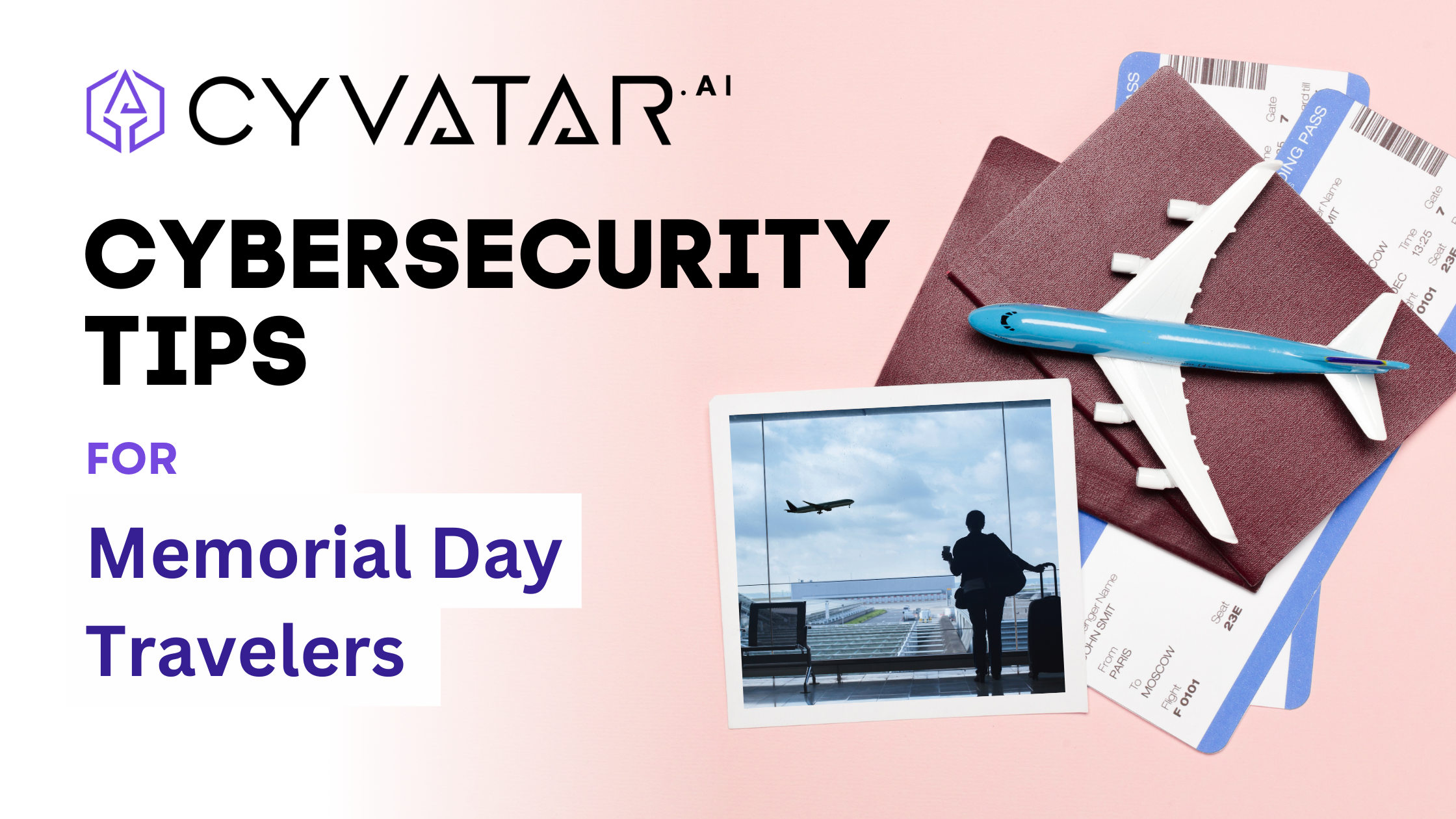Cybersecurity Tips for Memorial Day Travelers

Cybersecurity Tips for Memorial Day Travelers
Courtney Pereira | 05/21/2024Memorial Day often marks the beginning of the summer travel season, with many people taking trips to enjoy the long weekend. However, traveling can expose you to additional cybersecurity risks. Here are some practical tips to help you stay safe while traveling over the Memorial Day weekend.
Secure Your Devices
Before you hit the road, make sure all your devices, such as smartphones, tablets, and laptops, are secure. Set strong, unique passwords or use biometric locks (like fingerprint or facial recognition) to protect your devices. Enable remote wipe capabilities so you can erase your data if your device is lost or stolen. Be sure to encrypt your laptop hard drive. On mobile devices, turn on stolen device protection and disable password and account changes if you have these features. When traveling and not using your laptop, shut it down. Only plug your USB-C plug into a power brick you own.
Avoid Public Wi-Fi Networks
Public Wi-Fi networks, such as those in airports, hotels, and cafes, are often unsecured and can be a hotspot for cybercriminal activity. Avoid using public Wi-Fi for sensitive transactions, such as online banking or accessing personal accounts. If you must use public Wi-Fi, consider using a virtual private network (VPN) to encrypt your internet connection and protect your data from prying eyes.
Use a VPN
A VPN provides an additional layer of security by encrypting your internet connection, making it more difficult for cybercriminals to intercept your data. When traveling, use a reputable VPN service to secure your online activities, especially when connecting to public Wi-Fi networks.
Keep Software and Apps Updated
Ensure that all your devices are running the latest versions of their operating systems and applications. Software updates often include security patches that fix known vulnerabilities. Keeping your devices updated reduces the risk of exploitation by cybercriminals.
Be Cautious with Social Media
While it may be tempting to share your travel plans and experiences on social media, doing so can make you a target for cybercriminals. Avoid posting details about your trip, such as your location or travel dates, until after you return home. This helps protect your home from being targeted while you’re away and reduces the risk of your personal information being exploited.
Enable Two-Factor Authentication
Two-factor authentication (2FA) adds an extra layer of security to your online accounts by requiring a second form of verification in addition to your password. Enable 2FA on all your important accounts, such as email, banking, and social media, to enhance your security while traveling.
Backup Your Data
Before traveling, back up your important data to a secure location, such as an external hard drive or a cloud storage service. This ensures that you can recover your information if your device is lost, stolen, or damaged during your trip.
Be Aware of Phishing Scams
Travel-related phishing scams can be common during holiday periods. Be cautious of unsolicited emails, text messages, or phone calls that claim to be from travel agencies, airlines, or hotels. These messages may contain malicious links or request personal information. Verify the legitimacy of the communication by contacting the organization directly using verified contact information.
Use Secure Payment Methods
When making purchases or booking accommodations, use secure payment methods, such as credit cards or payment services with buyer protection. Avoid using debit cards or wire transfers, which offer less protection in the event of fraud.
Keep an Eye on Your Accounts
Regularly monitor your financial accounts and credit reports for any unusual activity during and after your trip. Promptly report any suspicious transactions to your bank or credit card issuer.
By following these cybersecurity tips, you can enjoy your Memorial Day travels without compromising your digital security. Taking a few extra precautions can help ensure that your personal information and devices remain safe, allowing you to relax and make the most of your holiday.
